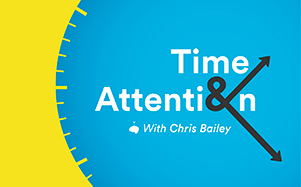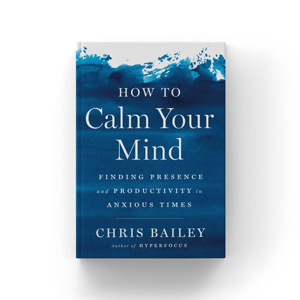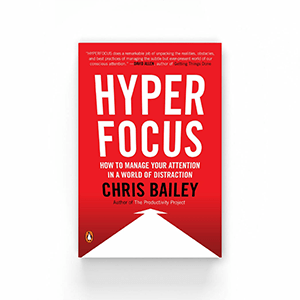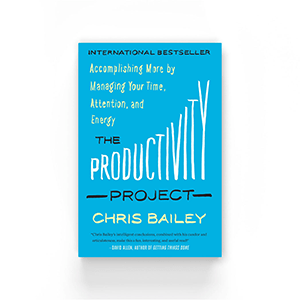Estimated Reading Time: 3 minutes, 56s.

Chances are you’ve experienced this phenomenon before: you fire up your web browser with the best of intentions, but suddenly, without realizing, you fall into an internet trance. Minutes later you snap out of it, as you find yourself staring at a friend’s 13th Facebook profile picture, the comments section of a news website, or your phone screen after mindlessly cycling through the same few apps on autopilot. You have no idea how you got there—kind of like ending up in a different room of the house, unable to remember what you went in there for.
What happened?
What happened was that the internet hijacked your attention. It has the tendency to do this, and for a curious reason: our brains find it hard to resist the mind-numbing allure of the internet. As Nicholas Carr put it in his eye-opening book The Shallows, “The net engages all of our senses,” and to make matters worse, “it engages them simultaneously.” Our hands are engaged as we tap around on our smartphone, slide the mouse across the desk, and type on the keyboard. Our ears are engaged with the sounds from the computer or the shiny rectangle in our hands. Our eyes are enamored by the ever-changing stream of text, videos, and kitten pictures. The feedback the internet gives us is intense and immediate—a deadly combination. The internet hijacks our attention by overwhelming our brain.
As you might guess, the productivity costs of this can be massive. Becoming more productive isn’t about working faster or more frantically—it’s about working more deliberately and with intention. And it’s difficult to act with intention when surfing the internet.
My favorite study about how we spend time on the internet was conducted by Tim Pychyl, at Carleton University in Ottawa. He studied how students used their time when they were connected. He discovered something shocking: that the average student spends 47% of their time online procrastinating. It’s impossible to procrastinate and work intentionally at the same time.
This by itself would harm our productivity, but the internet also frequently interrupts us by pulling our attention away from important work tasks. According to research firm Basex, “Interruptions and the requisite recovery time now consume 28 percent of a worker’s day.” Gloria Mark, an attention researcher at the University of California, found, “each employee spent only 11 minutes on any given project before being interrupted.” It took the average employee twenty-five minutes to return to the initial task after a large interruption. How frequently the internet interrupts us from more valuable tasks is significant when it comes to productivity.
On top of this, what we actually get done when we’re connected often isn’t as crucial as other work. While email, instant messages, social media, and other updates are unavoidable, chances are they have lower-return than other work. Not all tasks are created equal, and while the internet is essential, chances are we accomplish more by doing other tasks like designing and engineering the next version of a product, writing a report, talking to clients, and mentoring new employees.
The answer to this, I’ve found, is to disconnect—frequently—especially when I have to hunker down to work on important projects. It’s easier to remove the temptation in the first place.
 As I write these words, my smartphone is in another room, and the internet in my office is disconnected. I have my router on a timer, which switches it off during my most productive hours—and when I find myself easily distracted outside of those, I unplug it. I started writing this article 30 minutes ago, and I haven’t once been sucked into an internet black hole. While it would be unrealistic to do this all day, short bursts of time like this are when I’m the most productive. I waste less time, I’m less distracted, and I have more attention and energy to spend on my most vital work.
As I write these words, my smartphone is in another room, and the internet in my office is disconnected. I have my router on a timer, which switches it off during my most productive hours—and when I find myself easily distracted outside of those, I unplug it. I started writing this article 30 minutes ago, and I haven’t once been sucked into an internet black hole. While it would be unrealistic to do this all day, short bursts of time like this are when I’m the most productive. I waste less time, I’m less distracted, and I have more attention and energy to spend on my most vital work.
This week, I challenge you to do the same. Find a 30-minute pocket of time when you can completely disconnect. Your brain may initially throw a hissy fit. This is normal, especially if it has grown accustomed to the stimulation the internet provides. This isn’t only normal—it’s human. The internet is junk food for your brain.
The internet is one of the most remarkable inventions, and it would be difficult to get work done without it. But if you’re not careful, it can also obliterate your productivity.




